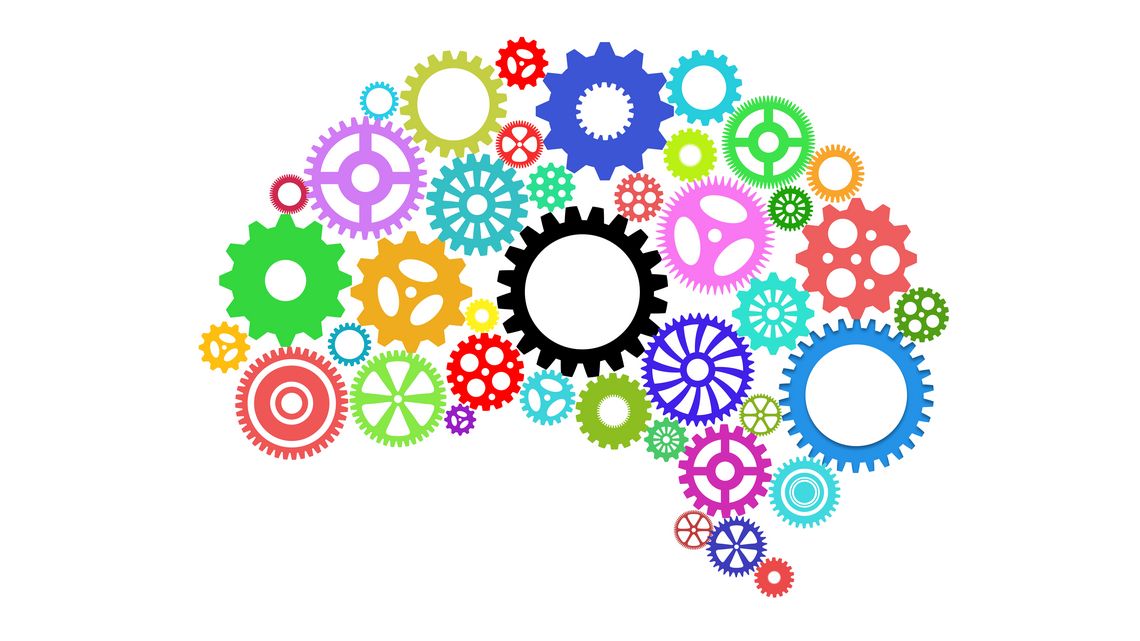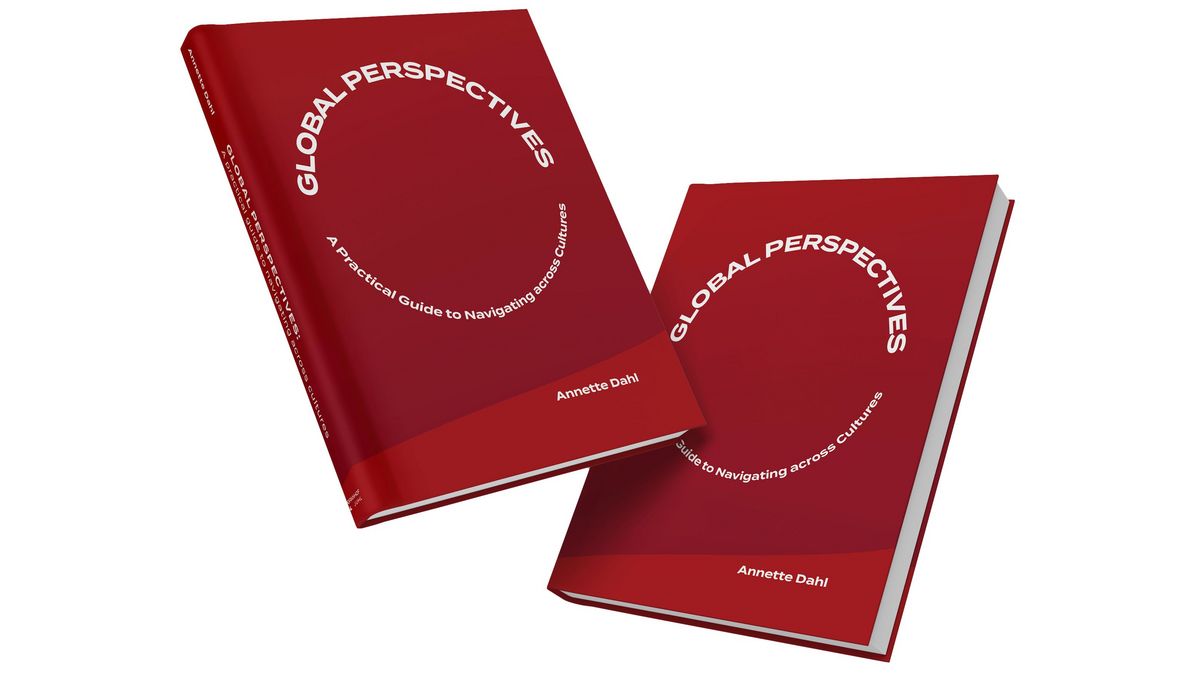
Understand the Brain’s Ground Rules and Become a Better Global Leader
"Brain-based leadership" is a field that is gaining momentum as brain research delivers new knowledge about, for instance, the plasticity of the brain.
In short, brain-based leadership suggest that you’ll be a better leader for both yourself and others if you have insight into the way the brain works. That’s also true if you work with global leadership.
In this blog post, we’ll look at some of the brain’s ground rules and give you input on how you can use your knowledge of the brain to strengthen your global leadership.
Train your brain to change perspective
Every day your brain is bombarded with an enormous amount of information.
But the brain is basically lazy and likes to save energy. That’s why it creates shortcuts by drawing on patterns from earlier experiences that it can use to filter and categorize new information.
Shortcuts make it quicker for the brain to handle new input. This happens when you meet new people, make decisions, or interpret the things you are experiencing. And most of it happens entirely unconsciously.
It’s just the way the brain works.
But the shortcuts can cause problems. They can prompt you to make bad decisions or to get stuck in points of view that don’t benefit yourself or the organization you work for.
It’s true generally. And it’s particularly true when you work globally.
That’s why you as a global leader need to pay attention to how the unconscious mechanisms in your brain can create a gridlock in your global collaboration. And you should know how you can help break the gridlock.
Here are some tips on how to do that.
"Different = weird" or "different = interesting"?
Maybe your Danish-based company has outsourced some IT tasks to India. In your Danish team you all agree that it hasn’t gone well. The way your Indian partners do things just doesn’t make sense. They make the same mistakes again and again. You get more and more irritated by them, which makes the co-operation even worse.
It could be that the outsourcing was a bad idea. But it can also be that there are some good results you’ve overlooked because you’re so locked into your perception that the way the Indians do things is just too strange.
Here "confirmation bias" is playing a role: It is much easier for the brain to confirm what it already knows than register things that point in the other direction.
If you as a leader want to break the deadlock, the first step is to understand what’s at play. And the next time your Indian partners do something entirely differently than you usually do it, stop and think: What if instead of thinking "different = weird" we thought "different = interesting"?
And what if we let go of the idea that OUR way is the right way to do things – and instead think that it’s not about RIGHT or WRONG, but just about different approaches?
Then you can start thinking about WHY the Indian business partners are acting the way they do. Why does that make sense for them? How do they see the situation from their perspective? Which values lie behind their way of doing things?
This will certainly require more energy in the start to force the brain away from its usual shortcuts and into entirely new paths. But if you train your brain to change perspective, it will become easier along the way.
So make it a habit when you work globally to think: It could be that I see it this way. But is that the only truth? Or is it just my perspective? What could the other perspectives be? What perspectives do my global colleagues have? And how can the new perspectives help create new and better solutions?
If you want to have more inspiration for how you can train your brain to change perspective, check the tool "Another Lens". The tool contains a series of questions that help you see an issue through various lenses so you can create better solutions.
Dig for the gold
When we do global leadership training at C3, we work a lot with the participants’ ability to change perspective. Here we often use a method called "gold-digging".
It’s a practical method that’s useful if you or your team works with global colleagues or partners that do things in a way you don’t think makes sense.
One example:
Maybe you’re used to a flat organizational structure, where there is a short distance between boss and employee and a direct tone when speaking to each other.
Now you will be working with a Chinese business partner with a strong hierarchical organizational culture. Every time something needs to be decided, it’s sent up the hierarchy and ends with a manager who you think knows nothing about the specific case. You experience this as tiresome and ineffective, and the collaboration is draining your energy.
Gold-digging requires that you change your perspective and explore whether there can also be some advantages in the hierarchical organizational culture:
- How does it look from the Chinese business partner’s point of view?
- Does the hierarchy create a structure that makes it easier for the individual employee to know what is expected of them?
- Can some decisions be made more quickly because fewer people need to be included in the process?
- Are there some things you might find useful yourself?
- How can working with a business partner from an entirely different cultural background help with your personal development?
- Etc.
"Gold-digging" and other methods for shifting perspective – or "reframing” as it’s also called – do NOT mean you should just be a "yes man".
But sometimes you are placed in situations that make you irritated / frustrated / drain your energy – and that can happen when you work globally. Often you can’t change the situation yourself. But if you can change your interpretation of the situation in a way that will give you more resources and fewer negative feelings, then you’ve come a long way.
Pay attention to the brain’s alarm bells
Do you sometimes come close to losing your temper when you work globally?
Then you should get to know your amygdala.
The amygdala is also called the "brain’s fear center" or the "brain’s alarm bell". When there is danger on the way, the amygdala gets activated and puts the entire body on alert. Your muscles tighten and your heart pumps so that you are ready to flee.
This is useful if you meet a dangerous wild animal and need to get away very quickly.
But the amygdala doesn’t know the difference between real and symbolic danger. That means it’s also activated if you’re given an assignment that seems too difficult to handle, or if you feel that your boss is challenging your work-related status or role. And that's not always useful.
When your amygdala is activated, it sucks in energy, so there is less energy for the rest of the brain. One of the areas affected is the frontal lobes, which is the part of the brain that is used to plan, solve problems, and make decisions. And the hippocampus, which is involved with memory and learning.
So, when you feel unsure, provoked or maybe threatened by something a global colleague has said or done, your brain’s alarm bells are set off – and at the same time, your problem-solving abilities are diminished, right when you need them.
And what should you as a global leader do with this knowledge?
You’ll get some input below.
Learn to handle your own amygdala reaction
Start by being aware of which situations in your global work trigger your own amygdala. When you’re aware, you can start working on handling the way you react when your amygdala gets going.
Don’t repress your negative feelings or the discomfort that the amygdala activation typically sets off. But try to hold these feelings at arm’s length instead of letting them consume you.
And the next time you are in the same situation, ask yourself: Can I interpret this situation in another way, so it creates fewer negative feelings for me? Can I see it from another perspective?
If you succeed in finding a new and more constructive interpretation of the situation that makes sense for you, you can gradually create new patterns in your brain, so the brain’s alarm bells ring lower or don’t go off at all when you find yourself in a similar situation.
And again: this is not about forcing yourself to love a situation you experience as complex and challenging – but about getting more resources and more energy to handle the situation than you had before.
Create frameworks for happy and relaxed brains
When the amygdala is activated, less energy is available for the other important parts of the brain.
When we do intercultural training at C3, we try to create a framework that doesn’t trigger the participants’ amygdala but instead makes their brains as happy and relaxed as possible. We do that because happy and relaxed brains learn best.
The same is true when you as a leader create a framework for your global employees.
If your employees’ amygdala is constantly being triggered, that will drain their energy and increase their risk of experiencing stress, uncertainty, and conflicts.
If the employees’ brains are happy and relaxed, they can use their energy to think creatively, solve problems, and make decisions.
Be aware that it can be entirely different things that trigger the amygdala of your employees around the world.
A Danish employee might get upset if a Hungarian boss constantly butts in and gives instructions down to the smallest detail about how she should handle her job. She believes the boss doesn’t trust her abilities and feels that her professional status is threatened.
And it might set off the alarm bells of a Chinese employee when a Danish boss asks his opinion about something in a meeting where the entire department is gathered. He experiences it as extremely unpleasant to have to speak in front of a large group where several bosses are present, and he is afraid of putting himself or his boss in a bad light.
So when you work with global leadership, you need both brain knowledge and cultural knowledge. If you need inspiration on how to sharpen your cultural knowledge, check our article here.
Do you have any questions or commentary about this blog post? Contact me at ad@c3consulting.dk or by telephone at +45 6017 0817. I look forward to hearing from you!
Annette Dahl, CEO and Chief Trainer at C3 Consulting
Want to know more?
- Contact us to discuss how we can help you strengthen your global leadership.
- Get an intro to the research field of "cultural neuroscience" here.
- Get more inspiration: Follow us on LinkedIn or sign up for our newsletter using the form below.

